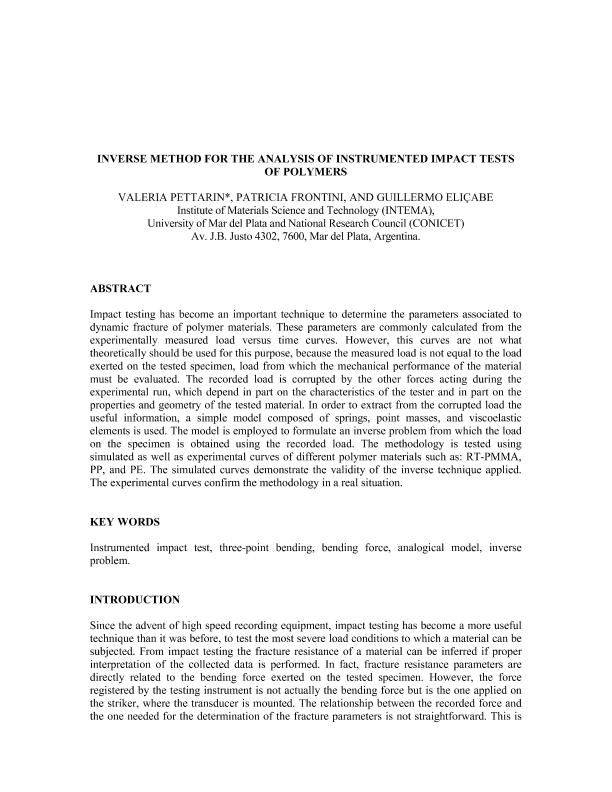Artículo
Inverse method for the analysis of instrumented impact tests of polymers
Fecha de publicación:
02/09/2007
Editorial:
Elsevier
Revista:
European Structural Integrity Society
ISSN:
1566-1369
Idioma:
Inglés
Tipo de recurso:
Artículo publicado
Clasificación temática:
Resumen
Impact testing has become an important technique to determine the parameters associated with dynamic fracture of polymeric materials. These parameters are commonly calculated from the experimentally measured load versus time curves. However, these curves are not what theoretically should be used for this purpose, because the measured load is not equal to the load exerted on the tested specimen, load from which the mechanical performance of the material must be evaluated. The recorded load is corrupted by the other forces acting during the experimental run, which depend in part on the characteristics of the tester and in part on the properties and geometry of the tested material. In order to extract from the corrupted load the useful information, a simple model composed of springs, point masses, and viscoelastic elements is used. The model is employed to formulate an inverse problem from which the load on the specimen is obtained using the recorded load. The methodology is tested using simulated as well as experimental curves of different polymeric materials such as polypropylene homopolymer, mid-density polyethylene, and rubber toughened polymethylmetacrylate. The simulated curves demonstrate the validity of the inverse technique applied. The experimental curves confirm the methodology in a real situation.
Archivos asociados
Licencia
Identificadores
Colecciones
Articulos(INTEMA)
Articulos de INST.DE INV.EN CIENCIA Y TECNOL.MATERIALES (I)
Articulos de INST.DE INV.EN CIENCIA Y TECNOL.MATERIALES (I)
Citación
Pettarin, Valeria; Frontini, Patricia Maria; Elicabe, Guillermo Enrique; Inverse method for the analysis of instrumented impact tests of polymers; Elsevier; European Structural Integrity Society; 32; C; 2-9-2007; 265-276
Compartir
Altmétricas




